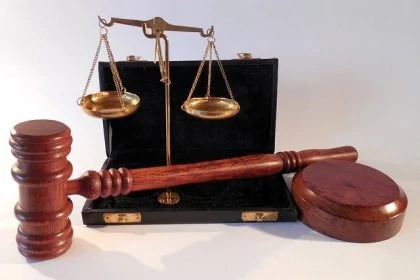Whistleblowers like Assange or Frances Haugen not only polarise in a political sense, but can also often prove patent infringements through their special knowledge. Is this permissible according to German law? The German Munich Regional Court commented on this question in principle.
Pharmaceutical patent in suit

This interesting case before the LG Munich, which was decided in 2018, concerned a patent for pharmaceutical use, in particular for intravenous administration against heart failure (the patent for injunction EP 1 210 085 B1). The plaintiff party is the owner of this patent and manufactures the product “Simdax” on the basis of it and also markets this product.
The defendant party, in turn, is an institution under public law, it operates a university hospital with a pharmacy as a non-independent department. Until 2009, the defendant party purchased the product “Simdax” from the plaintiff party. In 2013, the plaintiff suspected that the defendant had used the teaching of the patent in suit; there was correspondence about this, but no litigation.
However, this changed when an employee of the plaintiff found pharmaceutical products in the city clinic in Bad Tölz in 2016, namely ampoules of “Levosimendan (Simdax ®) of the defendant. The city clinic in Bad Tölz had these ampoules delivered as a cheap alternative preparation, but not all employees of the city clinic agreed.
Thus, in 2017, a senior physician of the city clinic made a test purchase of these ampoules from the defendant on behalf of the plaintiff, on the basis of which the plaintiff was able to prove the assumed patent infringement. The Munich Regional Court ruled that it was already obvious from the test purchase that the defendant’s ampoules were a substitute product.
Obtaining the evidence through whistleblowers
The test purchase itself and the way in which the evidence was obtained were therefore also the subject of dispute before the Regional Court. The question was whether this evidence was subject to ban on the use of evidence (so-called in German: “Beweisverwertungsverbot”) – and the Munich Regional Court commented on this question in principle and beyond the present case of a test purchase.
The court first referred to the legal literature, because according to the prevailing opinion, the assumption of a prohibition of the use of evidence in civil law proceedings only comes into consideration in exceptional cases (see Prütting, MüKo ZPO, 5th ed. 2016, § 287, marginal no. 67). Such an exception is conceivable where there is an unlawful interference with constitutionally protected basic positions of the individual (in particular interference with human dignity and the general right of personality). This must apply in particular in the case of serious, deliberate or arbitrary procedural violations in which the fundamental rights safeguards are systematically or systematically disregarded, the Munich Regional Court explained.
Patent infringement factually not provable without the whistleblower
However, the court ruled that this did not apply to the case at hand. At most, this was an interference with the established and practised business, which, however, was secondary to the fact that it would have been factually impossible for the plaintiff to prove patent infringements without the use of a whistleblower. Otherwise, it would not have been possible to investigate the medicines that the defendant supplies to its affiliated hospitals. Overall, no legal aspect was apparent that prevented the samples obtained by a whistleblower from being used, the Munich Regional Court stated, and also summarised this in the following Guiding Principle decision:
Guiding Principle Whistleblower of the LG Munich
“If the proof of a patent infringement is factually impossible without the use of a so-called whistleblower, a procedural assessment is not precluded even if the use as such constitutes an interference with the established and practised business of the potential patent infringer under civil law.”
Whistleblower risks own legal prosecution
The Munich Regional Court added that in the case at hand, the defendant had supplied hospitals that were in a long-term supply relationship with it and had an interest in obtaining low-priced alternative preparations to high-priced medicines. In this constellation, the suppliers have no interest in notifying any infringements to rights holders, the court emphasised.
For this reason, too, the patent infringement could virtually only be proven by a whistleblower – who, however, risked his own legal prosecution. This also happened in the present case: a charge of theft had already been brought against this whistleblower by his employer, the K. Stadtklinik in Bad Tölz, which was supplied by the defendant.
Are you looking for help in invalidity or patent infringement action?
Our lawyers have many years of expertise in patent law and trade mark and design law and are entitled to represent you before any court in Germany as well as internationally. We would be happy to help you.
Sources:
LG Munich, Leitsatz Whistleblower, 7 O 16124/17
Image:
our own design, based on TheUjulala | pixabay | CCO License








Leave a Reply